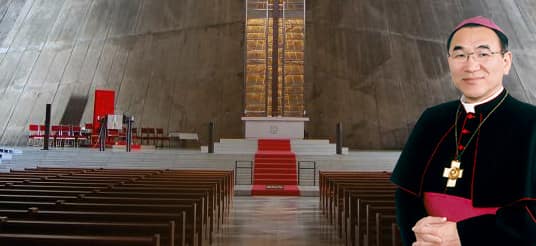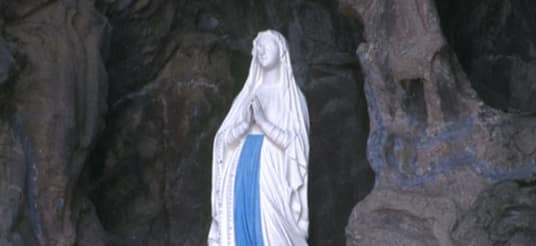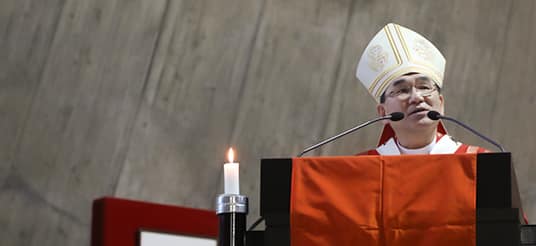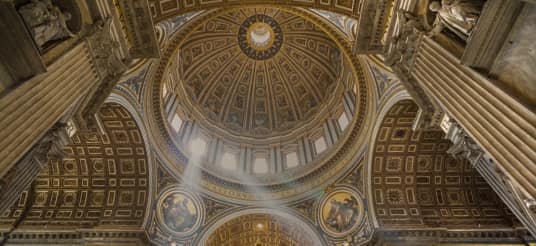Archdiocese of Tokyo

Memorial Mass for Pope John Paul II (Homily)
Apr 8, 2005
Readings First Letter to the Corinthians, Chapter 13, vv. 4-10, 12-18
Gospel according to Matthew, Chapter 5, vv. 2-10
“At 9:37 p.m. on April 2nd (which was 4:37 a.m., April 3rd here in Japan), Pope John Paul II, whom we all venerate and love, returned to the House of the Father.” This news was transmitted immediately to the whole world, and many people received it with deep sorrow. Today, as we gather here at Tokyo St. Mary’s Cathedral, we mourn over his death, remember him, offer our gratitude for the many graces shown to us through him, and renew our determination to continue his works and prayers.
Thus, we are gathered here today, not only to grieve over the death of our Pope who has just entered eternal life. We are also here to remember him, to thank God for giving him to us and renew our determination to fulfill his will.
The late Pope was really a great man of Religion. He was extremely faithful and strict with regard to the traditional teachings and the doctrine of the Catholic Church. But, on the other hand, he brought forth an “openness” to the church that was never there before. He transformed the Catholic Church and made it open to other Christian denominations, other religions and other movements throughout the world. His life and mission were truly modeled after Jesus and the teachings of the Holy Scriptures.
Above all, the Pope was a man of love — a love that was explained in the readings we have just heard. His love was poured out on all peoples, going beyond the boundaries of the Church, especially on those who are suffering because of poverty, wars, conflicts, illnesses and the like. He always walked with the smallest and the poorest of society. What I would like to mention especially on this occasion is his love that enabled him to sincerely ask for forgiveness. In 1994, during the preparation of the Great Jubilee Year, he issued an unprecedented Pontifical letter admitting that the Church, that is, we the People of God, must purify ourselves “through repentance, of past errors and instances of infidelity, inconsistency and slowness to act.” To acknowledge the weaknesses of the Church in the past, to recognize errors and to apologize…that is really a great act of courage and sincerity. Among the mistakes of the sons and daughters of the Church in the past that were mentioned by the Pope were “intolerance and even the use of violence in the service of truth”, and the “lack of discernment”, which at times even tolerated the exploitation of basic human rights by totalitarian regimes. He also recognized acts of discrimination towards the Jews, and their persecution and publicly apologized. This action of the Pope was truly revolutionary.
And last, but not the least, people all over the world are praising Pope John Paul II’s contributions to peace. This Pope was indeed a “peace maker” whom the Lord Jesus spoke of in His Sermon on the Mount. His work was not limited within the framework of the Catholic Church, but affected all religions, all nations, and all the peoples of the earth. Therefore, the Pope gained the respect, honor and confidence of all. To share our memories about Pope John Paul II would truly take a lot of time. The important thing, however, to ask ourselves now is: “How should we move together into the future?”
The Pope respected the human dignity of each person, made appeals for the spirit of compassion, and encouraged the building of peace. Isn’t this the common goal that we should be striving together to achieve?
Now is the important moment. Let us bind our energies together and unite our hearts for World Peace.
Reference: Tertio Millennio Adveniente (November 1994) 33, 35, 36
St Mary’s Cathedral Tokyo
April 8, 2005





